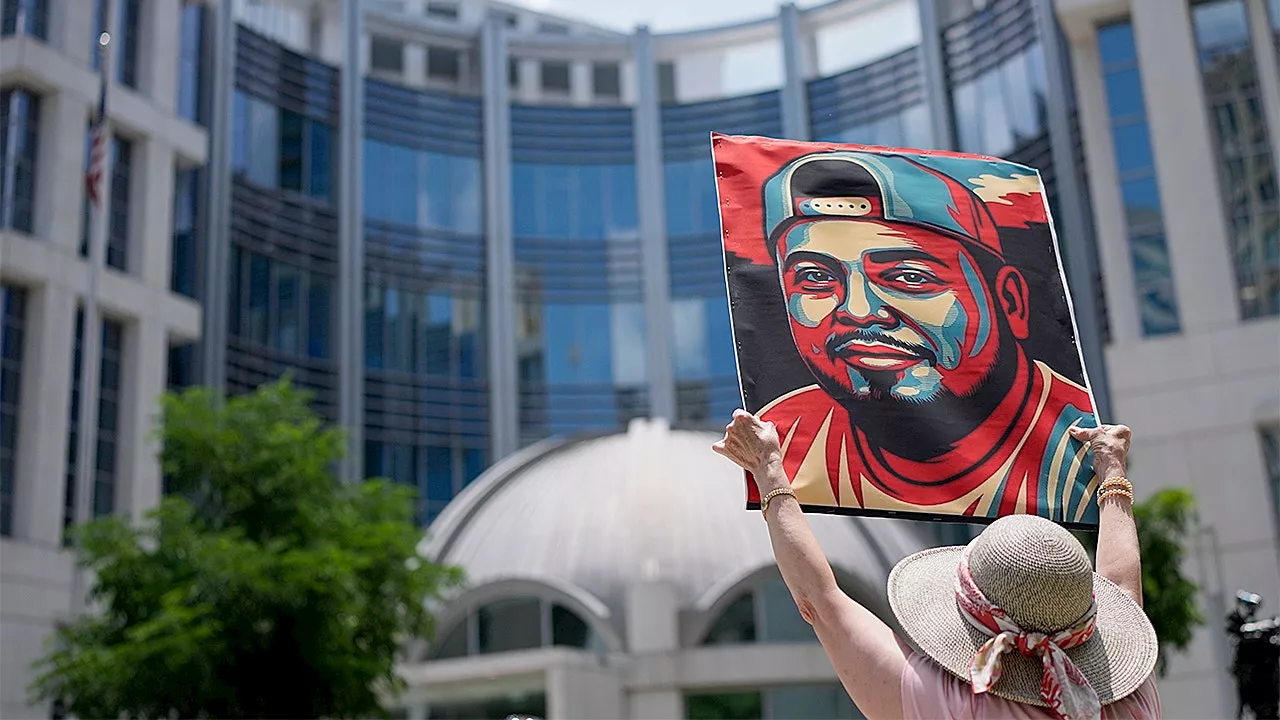A federal judge in Maryland has pledged to make a prompt decision regarding the deportation case of Salvadoran migrant Kilmar Abrego Garcia. This commitment follows a lengthy hearing that revealed significant inconsistencies in the Trump administration’s immigration policies. U.S. District Judge Paula Xinis stated she would issue her ruling “as soon as possible” after a nearly seven-hour session that scrutinized the administration’s attempts to deport Garcia to a third country.
The hearing highlighted challenges in the administration’s handling of Garcia’s case, particularly its failure to present a knowledgeable witness. Judge Xinis expressed frustration over the lack of pertinent information provided by John Schultz, the deputy assistant director of ICE’s Enforcement and Removal Operations. During questioning, Schultz struggled to recall key details about Garcia’s deportation plans, including which officials were involved in the case and communication with potential destination countries.
The focus of the hearing revolved around Garcia’s request for release from immigration detention while awaiting further developments in his case. The court had previously mandated an evidentiary hearing to evaluate this request and to question a Trump administration official with “first-hand” knowledge of the deportation plans to Eswatini, which was initially identified as a suitable third country.
Judge Xinis’s concerns intensified as testimony revealed that countries previously cited by the administration, such as Uganda and Ghana, had not agreed to accept Garcia. She pointedly questioned why the government had not pursued Costa Rica, a nation reportedly willing to accept him. This line of inquiry underscored the administration’s apparent misrepresentation of the situation regarding potential third-country acceptance.
The hearing concluded with Judge Xinis taking the case under advisement, leaving Garcia’s status unresolved for the time being. The legal proceedings surrounding his case are emblematic of the broader challenges faced by the Trump administration’s immigration policies in U.S. courts. As the judge deliberates, the implications of her ruling could significantly affect the direction of immigration enforcement and the treatment of migrants seeking asylum in the United States.
The complexities revealed during the hearing reflect ongoing debates over U.S. immigration policy, particularly the administration’s approach to deportations and the legal frameworks that govern such actions. The upcoming ruling from Judge Xinis is anticipated to clarify the government’s position and set a precedent for future cases involving deportation and immigration detention.
As developments unfold, the case exemplifies the intricate balance between enforcement and legal rights within the immigration system, highlighting the emotional and legal stakes involved for individuals like Kilmar Abrego Garcia.






































































